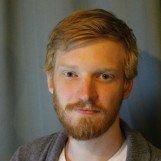Prospective undergraduates are welcomed to the School of Computer Science for an undergraduate visiting day.
Event details
- When: 28th October 2015 14:00 - 15:30
- Format: Visiting Day

Prospective undergraduates are welcomed to the School of Computer Science for an undergraduate visiting day.
Prospective undergraduates are welcomed to the School of Computer Science for an undergraduate visiting day.
Prospective undergraduates are welcomed to the School of Computer Science for an undergraduate visiting day.
The School of Computer Science welcomes the opportunity to hear from Dr Babak Esfandiari from Carleton University, C anada who will be delivering his talk on ‘Toward Workflow Management for Experimental Science?’.
anada who will be delivering his talk on ‘Toward Workflow Management for Experimental Science?’.
Abstract: Data, code, and other digital scientific artifacts are often found (at least by this presenter) to be out-of-synch, unreliable, poorly organized and only partially available. This makes science often hard to reproduce. In this talk, I demo an online tool to manage the workflow of a scientific project, and I speculate over how or whether it can help address these issues.
Bio: Babak Esfandiari is an Associate Professor at Carleton University, a comprehensive university located in the capital of Canada, Ottawa, Ontario. He obtained his PhD from Montpellier II, which specializes in Science and Technologies. His research is in agent-based systems; network computing; object-oriented design and languages.
The SICSA Summer School on Practical Types will give participants an overview of how types can be used in practice. Types have provided numerous benefits in programming language research, including language design and compiler construction, over the years and this trend looks set to continue into the future. But types have also found much wider practical application, e.g. in areas such as programme verification, termination checking, security, concurrency, software testing, resource analysis, systems biology, semi-structured data formats, databases, linguistics etc.
The school will consist of a series of 2-3 hour lectures covering introductory topics (e.g. type checking, domain specific languages, dependently typed programming), and more advanced topics such as those mentioned above. Thus we aim to cover how can types be used to classify and enhance our knowledge within specific domains of human activity, and how we can use modern functional programming languages to implement programs which take advantage of that type structure.
There will also be time in the program for participants, especially students, to present short talks about their own experience and works in progress.
The School of Computer Science welcomes Timothy Jones, a PhD student from Victoria University of Wellington,New Zealand .
.
Abstract: Adding object branding to an existing structural system integrates nominal and structural typing without excessively complicating the type system. We have implemented brand objects to explicitly type objects, using existing features of the structurally typed language Grace, along with a static type checker which treats the brands as nominal types. We intend to extend this approach to arbitrary, gradually enforced contracts and investigate the language features necessary for their implementation.
I am currently involved in the Grace programming language project, through the Hopper implementation of the language, as well as formalising the language’s semantics. You can find an online editor for Grace at grace/editor, and the Gribber music system (a Grace plugin for Gibber) at grace/gibber.
I’m also an avid Haskeller. My most successful contribution is the http-media library, part of a larger attempt to simplify REST resources in the Snap web framework. I’ve tutored the Programming Languages (Haskell and Prolog) course at VUW for several years, as well as taught the Advanced Programming Languages course.
High school pupils from across the world are given a taste of what studying computer science at a Scottish university involves. Pupils are guided through fun, hands-on programming activities. These sessions are part of the ELT Science Summer School
This session is run as part of the LIFT OFF to Success (LO2S) programme and is aimed at giving school pupils an insight into what it would be like to study computer science at university.
During the session, pupils take part in a practical programming exercise, where they learn about software development techniques and gain experience writing and developing code.
This session is run as part of the LIFT OFF to Success (LO2S) programme and is aimed at giving school pupils an insight into what it would be like to study computer science at university.
During the session, pupils take part in a practical programming exercise, where they learn about software development techniques and gain experience writing and developing code.
High school pupils from across the world are given a taste of what studying computer science at a Scottish university involves. Pupils attend lectures in the morning and take part in fun, hands-on activities in the afternoon. These sessions are part of the Science Summer Programme at St Andrews.